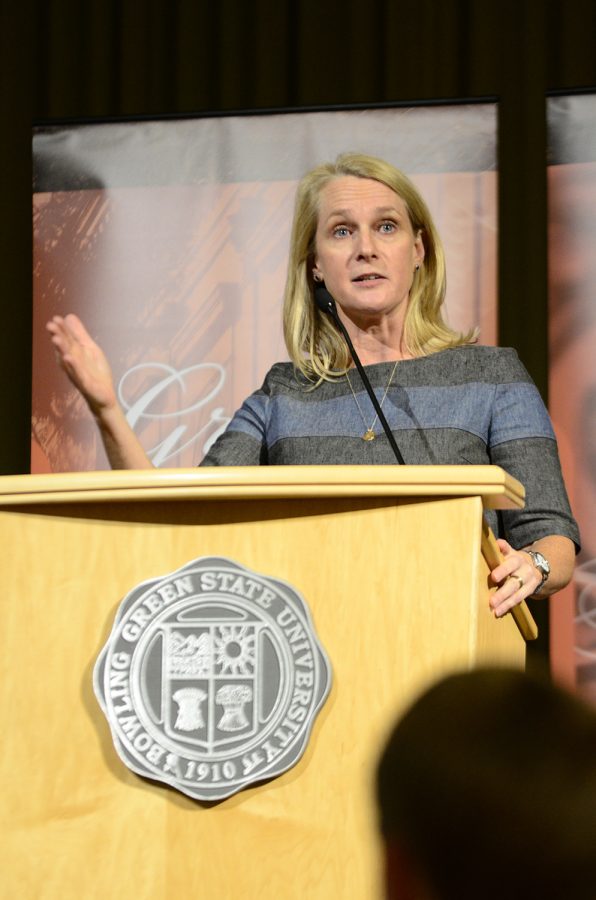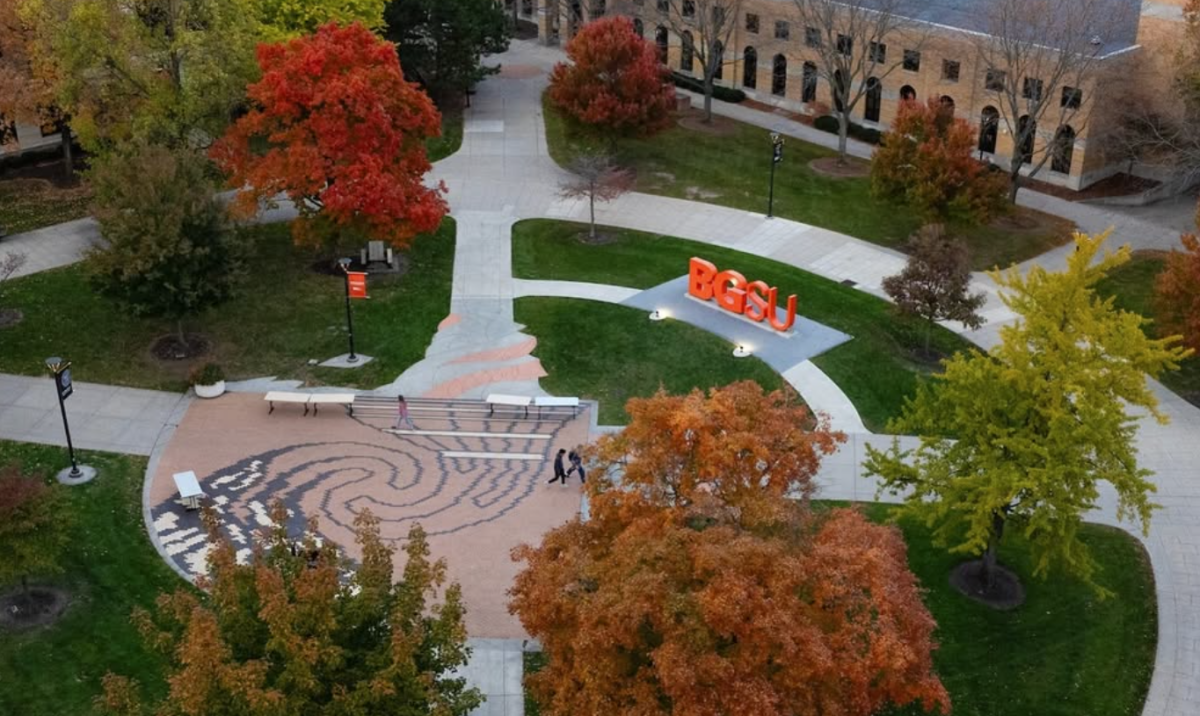When Piper Kerman was sentenced to federal prison on money laundering charges in 2004 she entered the world’s biggest prison population.
“The United States has five percent of the world’s population but holds twenty five percent of the world’s prisoners,” Kerman said. “And actually when it comes to females, one third of all prisoners who are women or girls in the world are here in the United States.”
Kerman visited the University on Tuesday to speak to students, faculty and community members about her experience serving 13 months in minimum security prison, her memoir “Orange is the New Black” and criminal justice reform. Kerman was brought to campus by the University libraries for their annual “Ordinary People, Extraordinary Stories” event. This is the fifth year the event has been put on, with speakers in the past including Elizabeth Smart.
Dean of University Libraries Sara Bushong said two staff members said they aim to “present a really inspiring story that people can relate to.” Kerman was selected after two staff members saw her speak at a different event and recommended her.
“We thought her story would resonate with our students.” Bushong said.
In addition to a Q and A and panel where Kerman and University professors from the criminal justice and social work program spoke criminal justice reform and answered questions from students, Kerman spoke at length later in the evening about her life and book at a ticketed dinner that aimed to bring members of the community to campus.
“It really builds goodwill to be able to connect the BGSU community with the greater regional community.”
Kendra Kerner, a masters student at the University who’s studying mental health counseling, attended the Q and A and panel for students and found it very interesting.
“Being in the mental health counseling field I’m really intrigued by the prison system and the ways that we can make prison systems better for inmates,” Kerner said.
She said she thinks events and speeches like this are important for the campus to put on as they bring up major and relevant topics that don’t always get the attention they deserve.
“It brings awareness to issues that may not be talked about daily,” Kerner said. “I thought it was interesting that we label inmates and felons and not really treat them as humans,” she said.
Much of Kerman’s panel and her speech later that night centered on the women she served with and the “huge impact” they made on her,
“The truth of the matter is that I left prison in 2005 […] a very different woman, largely become of the women that I did time with,” Kerman said. “Many of those women were very different than me in some ways but what was always important on a day to day basis was to find some sense of common ground, and that was a lot easier than many people might assume. The things that we had in common were much much more important than the things that made us different from one another.”
Kerman said her goal with writing the novel was to invite pople to put themselves in the shoes of a woman in prison and reconsider if that’s the system they’d want for themselves or someone they care about.
“I hope simply that people might come away from the book thinking a little differently about who’s in prison in this country, why are they there, what really happens to people behind the bars,” she said. “Because my own experience was very different than what i thought it would be and what i anticipated.”
Kerman also outlined reforms she would like to see including common sense sentence reforms, jail court reform, and reducing the number of children in the system, especially in adult prisons.
She also addressed the hit Netflix series inspired by her memoir of the same name. She made sure to clarify for the audience that not everything depicted on the show is from the book or her own life.
“I always say about the show she takes the book, she puts in the blender, she puts in a lot of other ingredients in there and she presses liquify,” Kerman said.
Despite the differences, big and small, Kerman praised how the writers have created a “very genuine world” and is pleased that the themes from her book are present in the series.
“My feeling about the show is it causes more people to think more critically about mass incarceration[….] then I’m okay with that,” she said.
Melinda Snider, a Wood County graduate and ‘79 University graduate came to the event specifically because she’s a fan of the series.
“I was familiar with the show, it’s very popular, and I was curious so I came to see whe was like,” she said.
Snider said she saw the event as a “form of education” that opens up conversations about important topics.
“I was surprised by the statistics of women in prison,” Snider said. “And that concerns me, our large prison population.”
Currently, Kerman is living in Columbus, Ohio, where she works at two prison facilities: the Marion Correctional Institutional and the Ohio Reformatory for Women where she teaches nonfiction writing.
Her students are writing their own stories, about their lives both in and out of prison, as well as reading nonfiction works. Kerman said she hopes that they’ll be able to publish the stories of some of her best writers online soon.
She also said that she enjoys speaking at universities and was happy to interact with the students.
“I got a ton of smart questions [from students],” she said. “It was so great to be here at Bowling Green State University.”




















